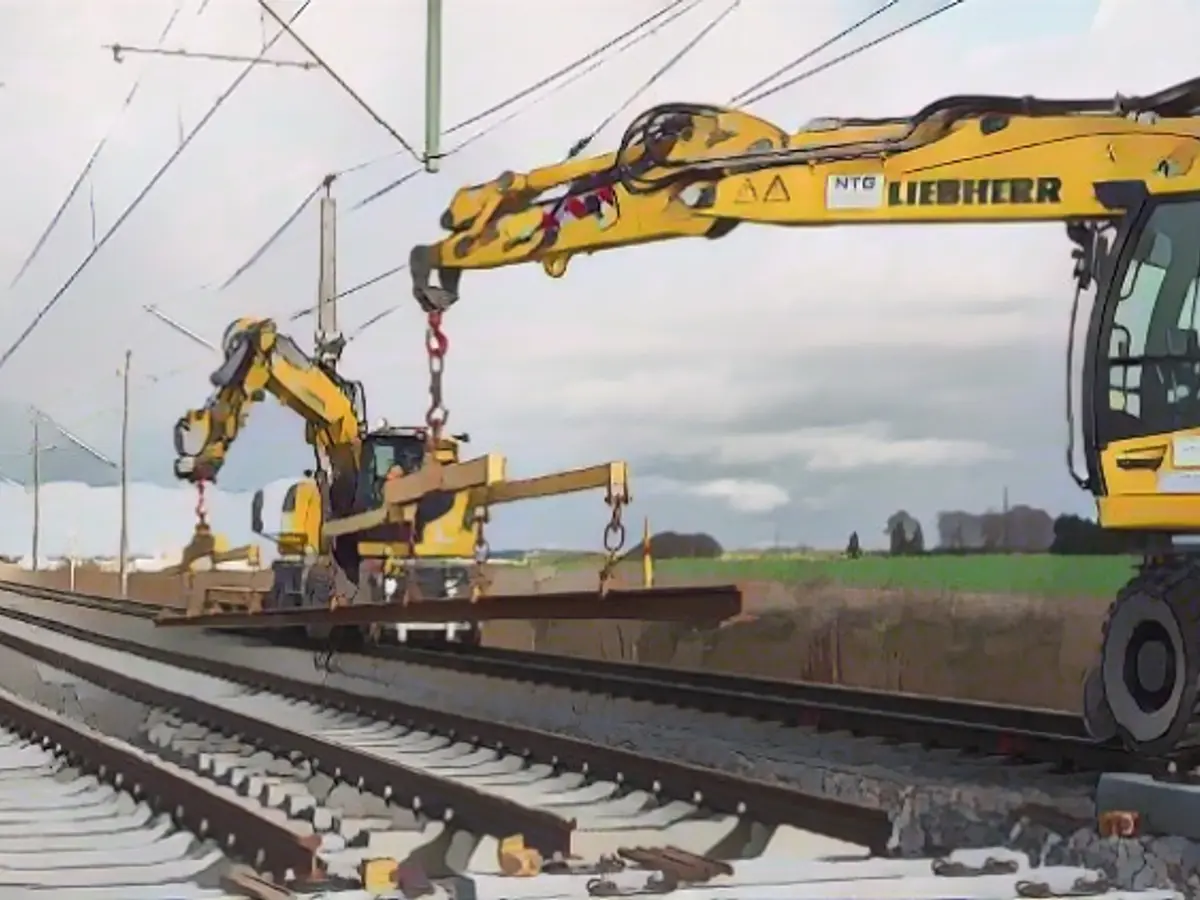Upgrading the German Rail Network: Navigating Financial Challenges
The ambitious plan to extensively renovate Germany's much-needed rail network with an investment of approximately 40 billion euros hit a snag when the Federal Constitutional Court intervened with its budget ruling. However, the traffic light coalition, determined to avoid cutting rail spending, presented a fresh financing strategy.
Uncertain times for investments
Recent months have been a rollercoaster ride for rail passengers as they grapple with persistent delays – with almost every second Deutsche Bahn long-distance train encountering issues last month. The German government sought to tackle this predicament by setting aside 40 billion euros for upgrading the network's vital infrastructure.
The Federal Constitutional Court's ruling, however, brought renewed uncertainty to these plans, with at least 12.5 billion euros suddenly up for grabs from the Climate and Transformation Fund (KTF). For a while, the government remained undecided about staying committed to its planned investments and locating alternative funding sources.
New financing blueprint
Clear as daybreak after the dark night, the coalition has confirmed that rail spending will continue to receive full backing. The funds for these improvements will be secured through different means, with no savings measures being implemented for the railroads.
Originally, it was planned for the billions earmarked for renovating crucial rail corridors to derive primarily from the federal government's core budget, mainly from revenues generated via truck toll expansion. This remains unchanged.
Additionally, the government had previously decided to increase the equity of Deutsche Bahn AG by 12.5 billion euros. The remaining 12.5 billion euros had been allocated from the KTF. Following a change of heart, the government aims to further bolster Deutsche Bahn AG's equity to enable the Group to finance the investments on its own.
Privatization and sale of strategic assets
The flow of funds to strengthen Deutsche Bahn has already been pencilled in: "We will privatize federal holdings that are no longer essential and use the proceeds to strengthen Deutsche Bahn," reported finance ministry officials. The idea of selling shares in Deutsche Telekom, currently retaining a stratospheric 25% plus one share, is gaining traction amongst government circles.
Unlike its stance on Deutsche Telekom, the traffic light coalition is reportedly planning to divest itself of further shares in Deutsche Post to free up resources for urgent rail network modernization initiatives.
Sales proceeds and Debt reduction
Deutsche Bahn is presently pursuing the sale of its well-performing subsidiary, Schenker. The group’s proceeds, initially intended for reducing corporate debt, appear likely to now be redirected towards the renovation of the rail network.
Green transport politician Matthias Gastel welcomed this development. "The proceeds from the Schenker sale are extremely valuable for rejuvenating the ailing rail infrastructure," he said, urging Deutsche Bahn's management to concentrate solely on improving rail services within Germany.
Full closures and renovation of key lines
By 2030, 40 heavily utilized rail lines are slated to undergo a comprehensive, five-month overhaul before being reconditioned and upgraded. Transformation of the Riedbahn between Frankfurt and Mannheim, one of Germany's busiest rail corridors, will commence first, followed by the Hamburg-Berlin line.
The modernization initiatives are anticipated to improve rail traffic conditions as the overall network's capacity expands. Passengers, though, must brace themselves for greater restrictions during the construction period, with their long-distance and freight journeys experiencing increased travel times.
Concluding thoughts
The traffic light coalition's commitment to maintaining railway investments following the court's ruling has brought relief to the rail industry and its customers. The coalition has rightfully recognized the need to break away from this prolonged austerity course.
The proposed financing plan draws on increased equity in Deutsche Bahn AG and potential proceeds from the sale of federal holdings in Post and Telekom to keep rail investments alive. Renovation plans are set on a firm footing, targeting the overhaul of vital rail corridors and the modernization of heavily used lines such as the Riedbahn and Hamburg-Berlin lines.
Relevant reading
This essential funding plan, led by the Federal Ministry of Transport under Volker Wissing, strives to ensure that necessary rail upgrades continue unfettered – regardless of unforeseen legal challenges.








